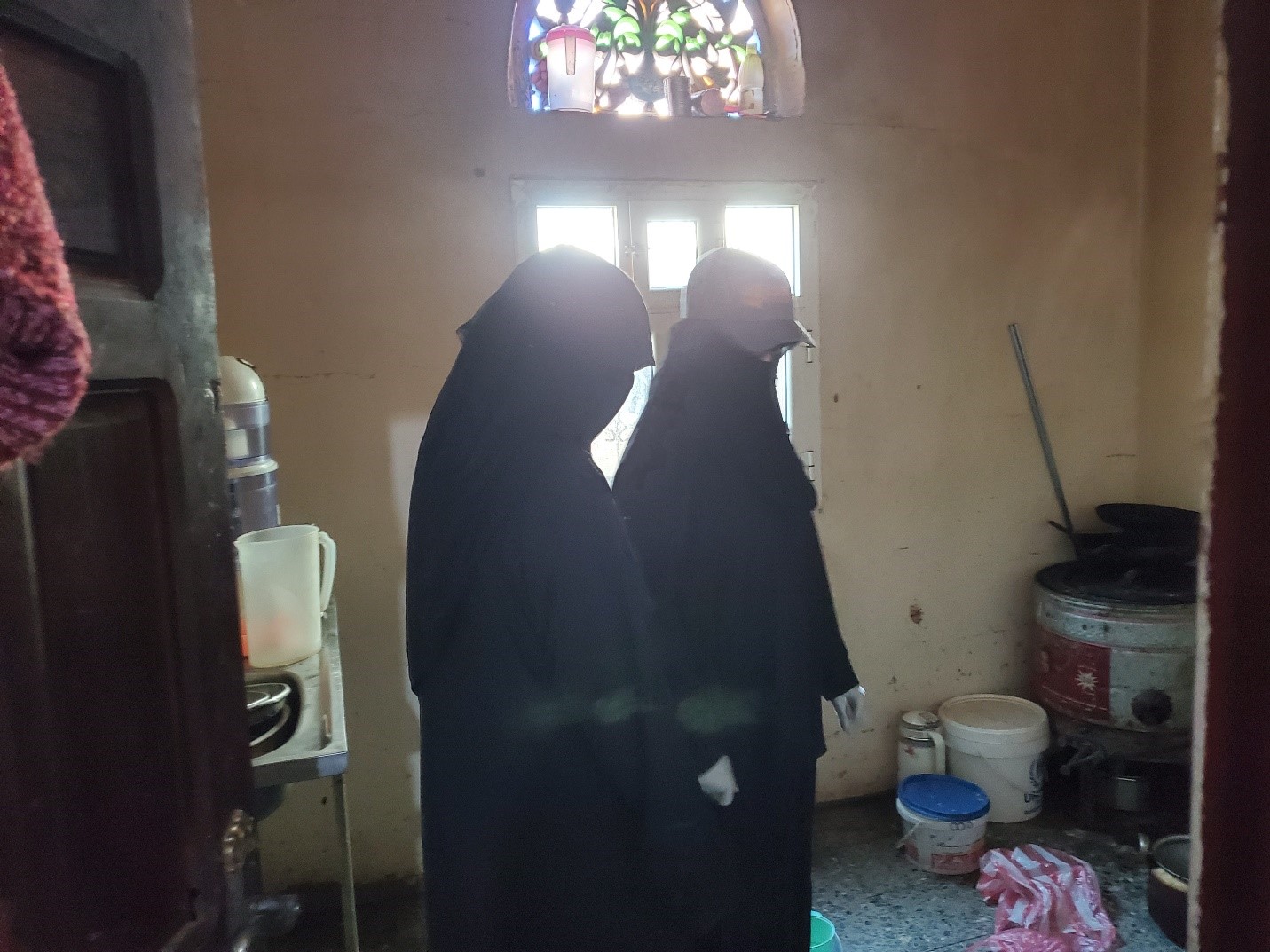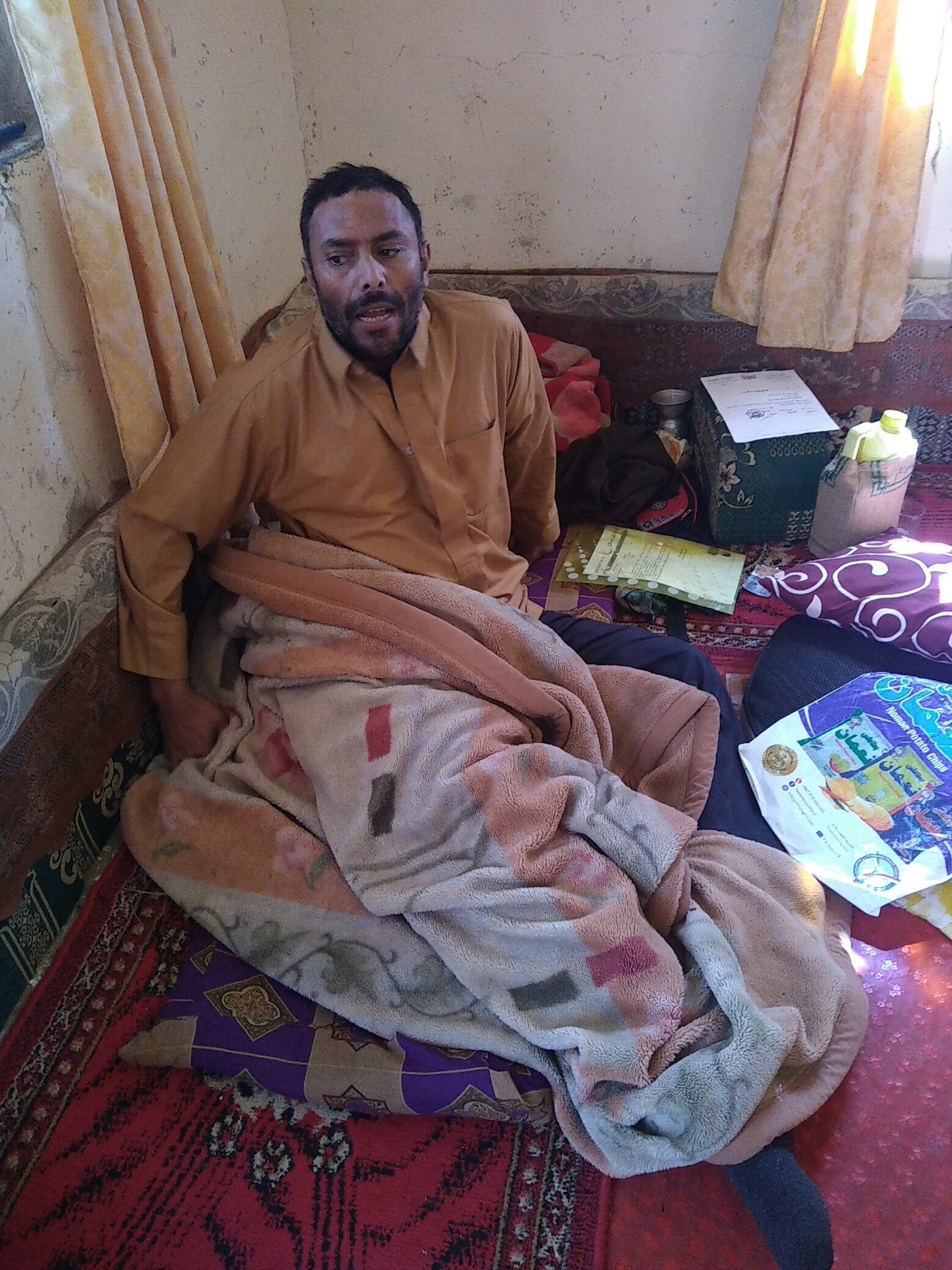“While we were sleeping we suddenly heard planes flying over the city and bombing sounds coming from everywhere,” says Fatima with dull eyes as she explains the horrible experience she went through. “We were terrified and running crazily. I ran directly to check on my children and took them out of the house into an open area. The attack was so fierce that the whole neighbourhood was completely destroyed and we decided to flee to Amran city. We couldn’t take any of our belongings with us. Everything was lost in the blink of an eye. We never thought this would happen to us.”
The traumatic experience of conflict and forced displacement had a severe negative impact on Fatima’s husband’s mental health and he now suffers from mental disorders, with the lack of a job and stable income making his condition even worse.
“When we first arrived in Amran,” says Fatima, “my husband looked for work, but he couldn’t find any. He kept worrying about providing the basics for our children until he got sick. Now he lives on medication. We didn’t only lose our past life, we also lost the family’s breadwinner.” Fatima now bears the burden of responsibility – she has to pay the monthly rent and the weekly water trucks. “I always think of where I can get medication for my husband and how I can provide enough food for my children,” she says.
According to the International Organization for Migration, Amran governorate, to the north of the country, hosts the second-highest number of internally displaced people (IDPs) in Yemen. Noman Al-Hajj is a 37-year-old father to nine children who fled from Sada’a to Amran governorate. “I lost all my farms in Sada’a and fled to Amran, seeking a safer place for my family,” he says. “When I arrived, I rented a small old apartment that had been deserted for years. One day, it was raining heavily and the roof started leaking. Shortly after, the roof fell down as I was trying to get my children to another room in the house. It was terrifying.”
Noaman accompanies his children when they go to fetch water daily. Unfortunately, he suffers from a slipped disc and can’t help them to carry jerry cans of water. “We lack basic services like water and health care,” he says. “I also can’t find work and pay the rent or even buy daily necessities. Sometimes generous people give us food. A displaced life is hard.”
Like Fatima and Noman, displaced people across Yemen live in extreme conditions with limited access to health, water, sanitation and protection services. Access to water, in one of the most water-scarce countries in the world, has been further diminished by the impact of the ongoing conflict. The lack of water contributes to a high prevalence of preventable diseases. Over 20 million Yemenis lack access to safe water, sanitation and hygiene, of whom 11.2 million are in acute need.
Luckily for residents of Al Jaboubah neighbourhood in Amran, with funding from UK Aid Match, CARE rehabilitated their water network and supplied water to each house in the neighbourhood. The project also provided cash assistance of 65,000 Yemen Riyals to displaced households to help them buy basics like food and medicine. Additionally, CARE rehabilitated the plumbing system at three health facilities in Amran governorate and provided them with personal protection equipment in response to the COVID-19 outbreak.
“I feel elated because I paid the rent and bought the basics for my children,” says Fatima. “Thanks to CARE, I bought medication for my husband too.” Fatima hopes that this support will continue so her family can stay in their newly rented apartment.
Noman concludes: “Now I don’t have to worry about my children fetching water and with the cash I received from CARE I paid for my medication, which used to worry me a lot.”



